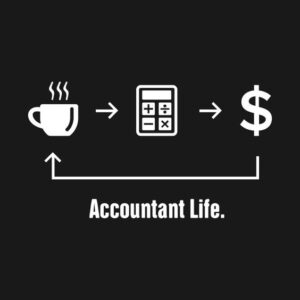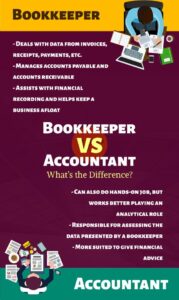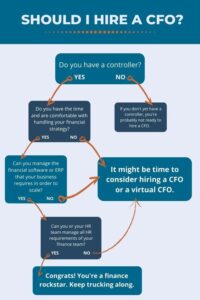What does an accountant do?
When you work with hundreds of industries, you start to notice patterns. There’s a pattern that we’ve noticed lots of small business owners share. It has something to do with the question “What does an accountant do?” and it’s part of a MYTH. But this myth could cost you everything if you believe it…
Myths can be dangerous ⛔️☣️⚠️
And this one is as dangerous as they come to a small business owner.
The problem with this myth is more about what it STOPS than what it starts.
So what is this secret that’s costing millions of business owners their livelihood?
It’s the belief that…
“My accountant sorts my finances for me”
And that creates myth number 2:
I don’t need to know my numbers if someone else is doing them 🤯 💣 🧨

What do accountants do?
The majority of small business owners in the UK rely on their accountants to “take care of” the financials. But they never stop to ask the question “What does an accountant do?”
Because of that, many of them are making a massive mistake.
And in this article, we’re going to show you why.
We’re also going to show you the disastrous effects it can have.
And what you can do about it by applying just 1 hour a month and 15 minutes per week.
Because if you carry on, without any understanding of business finance…
… something terrible is going to hit you.
And it won’t be long until it does.
And that’s why we had to write this article.
We were compelled to write it and clear the air. Because so many business owners are blindsided by this in their business.
And it can often cause the end of a small business.
But here’s the other thing, accountants are getting a bad rep too.
And it’s not their fault.
Leaving the finance to your accountant is the lazy option.
Or the easy option.
When it comes to finance, it’s rare that there’s a difference between the two.
So let’s get clear on what all of this means.
And let’s get clear on what an accountant has to do.
We’re going to look at what your accountant should and shouldn’t be doing.
And what YOU need to take control of.

What should they definitely do?
Here’s a list of things that your accountant should definitely do:
- File your VAT return on time
- File other tax returns on time (corporation tax etc)
- Complete your PAYE and payslips for your team (if you pay for that service)
- Complete your personal tax return
- Reconcile your invoices (if you pay for them to be done)
- Give you support if you are audited by HMRC
- Answer any questions that you have throughout the month
And most accountants do a bloody good job. In fact, a good accountant can save you more in tax than you pay them!
They effectively pay for themselves.
AND make sure that your tax is done on time, in the right way, so you avoid fines and penalties.
Now aren’t you glad you use an accountant?
But here’s the thing.
No matter how good your accountant is, they can’t “sort finance”.
There’s too much to do, and they have too many clients to service.
A decent-sized accountant will have anywhere from 250 to 1000 clients.
Which means they can’t be proactive.
They have to be reactive.
Reactive to what?
Notifications from HMRC saying that their client’s tax is due
Notifications from any software they use to remind them of tasks that need to be completed.
And reactive to emails from you and their other clients.
They simply don’t have the time to be proactive with every client’s finances.
And if they did, they’d have to charge ALOT more than the average accountant to make sure that they had enough staff to cover the workload.

Accountant VS Bookkeeper
Which leaves you with a bunch of stuff to take care of that your accountant doesn’t usually do.
This is the stuff that your accountant DOES NOT usually do for you (unless you pay them ALOT):
- Chase outstanding invoices
- Give you strategies to help you reduce your stock (which is where there’s often lots of cash tied up)
- Implement strategies to help you finish jobs quicker so you can invoice earlier (if it’s taking you a long time to invoice, it will take you a long time to get paid)
- Set up a budget tracker and track each week to look at how much you are spending vs how much you’d estimated in your cash flow forecast.
- Reduce your expenses (staff are usually the thing that business owners leave until last despite them being one of the biggest costs)
- Make sure you are buying your stock, inventory, or other expenses at the best price possible
And here’s some stuff that could be debated.
But either way, it would be tough for an accountant to do this with hundreds of clients:
- Make sure that every little item is allocated to the right category in the Profit and Loss statement (P&L)… you should be checking these each month.
- Do a regular deep dive into your P&L or Balance Sheet to spot trends and abnormalities. (The trend is more important than the number. If you hit the target, but the trend is dropping each month, it spells trouble)
- Measure the margins of each product or service so you can decide which you should be marketing (marketing and pushing your most profitable items is a great way to make more money)
- Complete a cash flow forecast for you (although an accountant may have tools to help)
- Give you proactive advice and tips on finance.
I’m sure you are starting to see the picture.
How could an accountant possibly do that for every single client they work with?
And that creates a conflict.
If my accountant doesn’t do this stuff, who will?
Before we show you how you can take care of ALL THINGS FINANCE IN JUST 1 HOUR A MONTH AND 15 MINUTES A WEEK, let’s look at what happens if you ignore it.
What happens if you don’t do this stuff?
In two words…
DISASTER STRIKES.
If you don’t know your numbers, there’s going to be trouble.
Why?
Let’s give you an example.
Imagine if you didn’t know how much profit you were making. And because you weren’t checking, you didn’t have a clue.
The only way of telling how things were going is by checking the bank balance.
So you’d do whatever it took to make sure the bank balance stayed above your break-even point.
During some months, the business activity made enough money so that you had the cash to cover the next month.
In other months you’d take business loans out.
And when things got even tighter, you’d put your own money into the business.
But here’s the problem.
Sooner or later, if you keep racking up debt, banks will stop lending money to you.
And you’ll run out of money to keep putting in the business.
Then what happens?
You either take control of your finances.
Or your cash flow problems make the business goes bump!
And then you’ve got to go and tell the family that you’ve failed.
Let go of the staff.
And have that awkward conversation with suppliers.
But if you’d been looking at the P&L and balance sheet, you’d have caught it early.
You’d have seen the trend.
And you could have done something about it.
Whether it’s reducing expenses, chasing outstanding invoices, or stopping buying as much stock…
…there’s always a way out if you have enough time.
But time works against you when you don’t know your numbers.
IF INSTEAD, YOU CAN GET THIS RIGHT…
The results can be breathtaking.
And all it takes is one hour a month and 15 minutes a week…
If you can get into the habit of reviewing your financials each month and then updating the budget tracker weekly… you’ll notice a transformation.
And that’s all it takes.
One hour a month to review your P&L (to spot ways of making more profit).
And your balance sheet (to see where cash is tied up and waiting to get out).
Then finally to map out your cashflow forecast so you can stay in control.
And if that’s too much, just hire someone.

Should I hire a CFO, a bookkeeper or a finance assistant?
Then 15 minutes a week to check how much you’ve spent each week against your forecast. If it looks like you are spending a bit too much, you can adjust.
But here’s the magical part.
You’ll be fully aware of EVERYTHING that is going on in the business.
And you’ll be able to take action or implement strategies to improve the financial problems that you’re now aware of.
It’s also likely that you’ll:
- Have more profit
- Sleep at night
- Be in control
- Be able to pay yourself more
- Improve the bank balance
- Be more present when you are with your family
And all you need to do is:
LEARN THE LANGUAGE OF FINANCE.
Review your finances once a month.
By looking at your P&L and looking for trends…
Or abnormalities.
Do the same with your balance sheet (looking at working capital)
And then complete a cash flow forecast.
You can use that cash flow forecast as a budget tracker so you can check each week to see how you’re comparing.
And when you do review your forecast, remember:
Accuracy is the name of the game

So NEVER update your forecast halfway through a month.
It will sway your figures.
You’ll look back at the end of the month and think you were closer than you actually were.
We need to see whether you’re naturally optimistic or pessimistic
If you’re naturally optimistic, you might think sales are going to be better than they are likely to be. When that’s the case, we see business owners spending and buying too much. Then when a bad sales month comes, it can be crippling.
Especially if you’ve overspent.
But being pessimistic is a problem too.
If you’re pessimistic with your forecast then you are likely to spend a lot less. That could mean you run out of stock or don’t have enough team members to complete the work.
So there you have it.
It’s time for you to take control.
And all you have to do is:
1. Learn the language by booking a workshop or course that teaches you everything you need to know about finance
2. Review your financial statements for an hour a month to spent trends and abnormalities
3. Spend 15 minutes each week updating your budget tracker.
4. Read articles, blogs, or books that teach you everything you need to know about finance and cash flow.
If you’d like to read more on the top tips and hints to make your business financially healthy, sexy, and cash-rich then read these articles here:
How to improve your cash flow position
How can a business coach help me with finance?
Summary
Finance is the second most important function in any business (behind marketing).
And too many small business owners completely ignore it.
Imagine if you did that in your personal life.
You wouldn’t know how much money is coming in, or going out.
Nor would you know how much money people owed you.
Or that you owed out.
Sooner or later, you’d hit bankruptcy.
And it wouldn’t take very long.
But now that you can answer the question “What does an accountant do?”
You can also see what YOU need to do.
And in just 1 hour a month, and 15 minutes per week, you can find success.
It’s also likely that you’ll:
- Have more profit
- Sleep at night
- Be in control
- Be able to pay yourself more
- Improve the bank balance
- Be more present when you are with your family
There you have it.
Now it’s time to take action.
And work your way towards having a business that’s financially healthy so you can live the life that you deserve.
What are your thoughts on the role of an accountant?
Do you think they should do more or less than we’ve mentioned here?
Let us know in the comments section.






